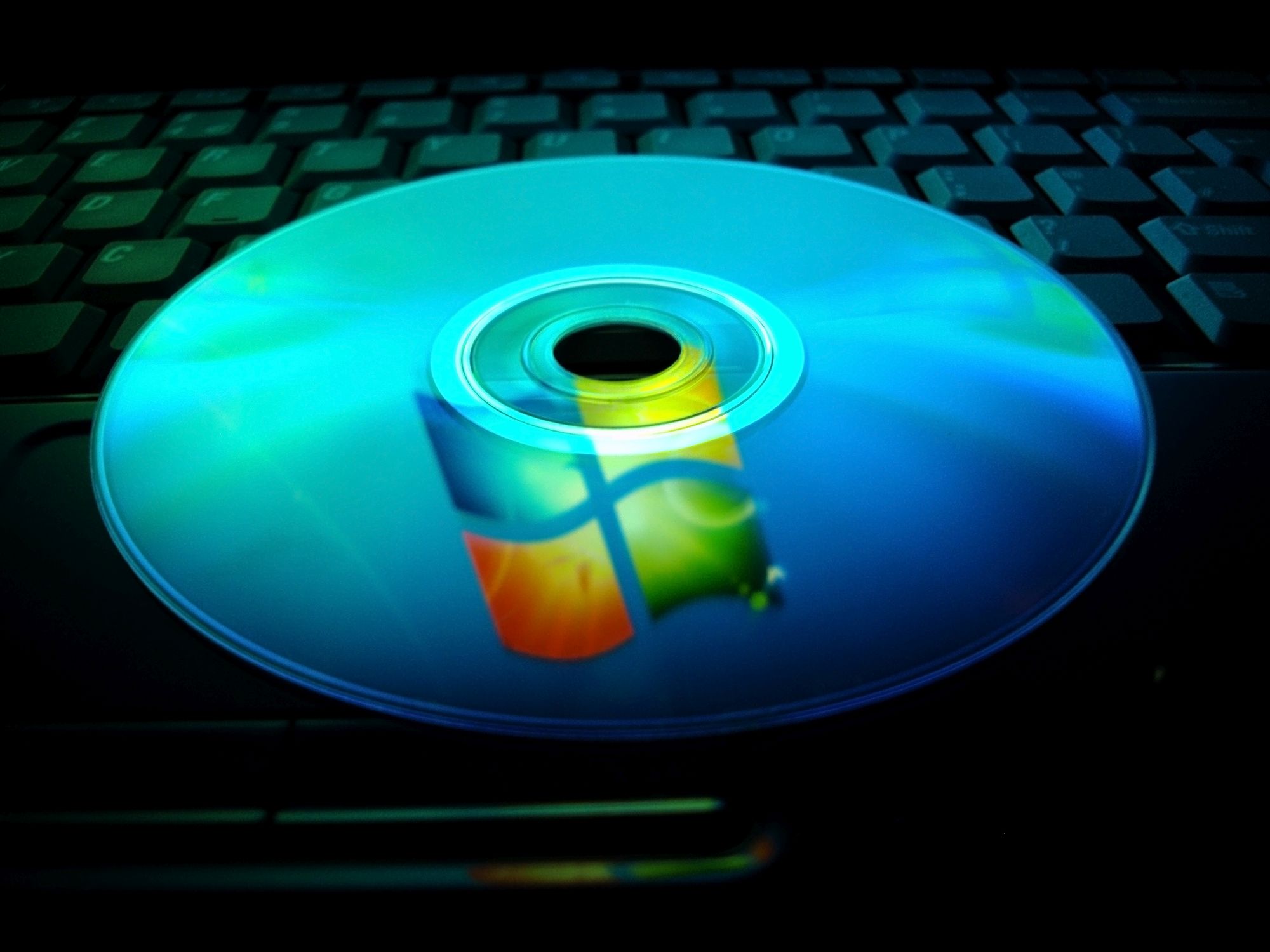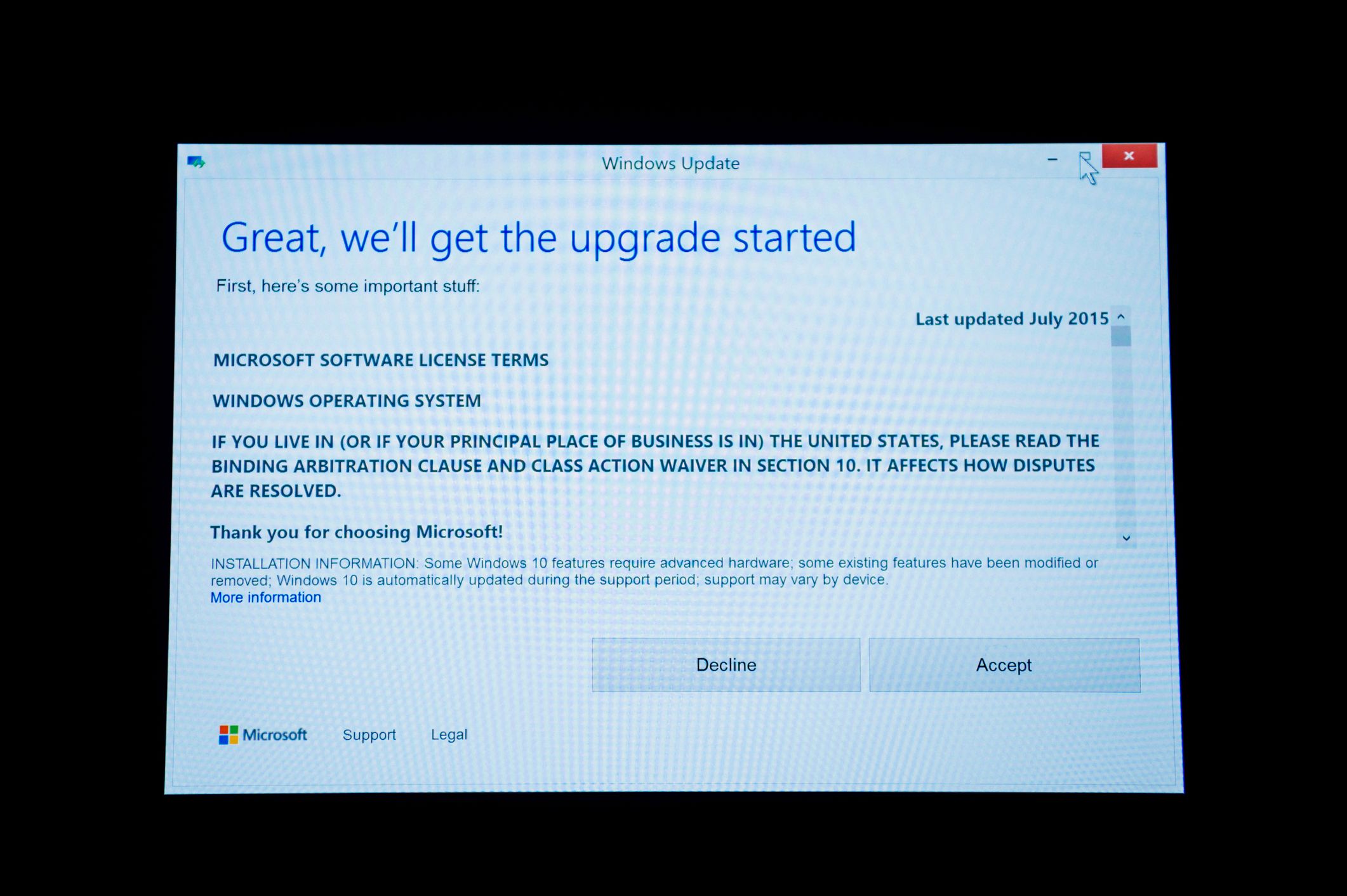At times, it seems the immense success Issociated with a product can turn out to be a curse in disguise. Case in point: Microsoft Windows 7. The company's latest OS incarnation seems doomed to always be perceived as second best, with Windows 10 only claiming a marginal lead over Windows 7 during Christmas sales in 2018. No matter how hard Microsoft has tried, many Windows 7 users still refuse to make the switch. January 14, 2020, will mark the end of extended support for the popular OS. The date has been known for years but what does it mean for end users? After said date, Microsoft will no longer provide security updates for Windows 7 by default, leaving millions of PCs vulnerable, should new security leaks be discovered. Users now have a year to think about alternatives.

Who will still receive updates?
Microsoft know many government institutions and companies can't switch to Windows 10 over night. Especially custom hard and software configurations are a huge issue and require code to be rewritten or new compatible devices to be purchased. For this reason (and because they love making money!), Microsoft will continue to offer security updates to owners of volume licenses Ior Windows 7 Professional and Windows 7 Enterprise. Private end users are left out in the cold. Still, the offer will likely carry a hefty price tag per machine and year and will probably increase in price each year. After all, Microsoft definitely wants their premium customers to upgrade.
Why are Microsoft doing this?
Windows 10 is the first Windows that doesn't come with a general end of support date. In the past, Microsoft had always imposed such a deadline on their Windows products but end users didn't care, since upgrade-worthy successors kept coming out. Due to definitive improvements, Windows 95 quickly replaced Windows 3.11, only to be replaced by Windows 98 and so on. There was a minor outcry over Windows XP but users loved, and still love, Windows 7. That's because it's fast, visually appealing and compatible with all relevant software titles. And Microsoft somewhat failed to create a convincing value proposition for Windows 10, instead making headlines with permanent update-driven system changes and gabby telemetry features. Still, the end is nigh for Windows 7 - if you consider a lack of security updates a showstopper. Generally, Microsoft provides support for their Windows versions for 10 years, the first 5 of which include both feature and security updates while the final 5 include security updates, only. Windows 7 was released in 2009 so 2020 makes perfect sense - and so does the desire to save development costs and to urge users to upgrade.
What are the dangers of using Windows 7 in 2020?
To be frank, once Microsoft stop delivering updates, offline will be the safest mode of operation for Windows 7 PCs, regardless of antivirus solutions or the security center between your ears. Ironically, Microsoft could even unintentionally aid hackers once they publish Windows 8.1 or 10 security updates in 2020. That's because of the architectural similarities between Windows 7 and its successors. Security updates for Windows 8.1 or Windows 10 provide details on exploitable vulnerabilities most likely present (and unfixed / unfixable) in Windows 7. You might think that, after so many years, Windows 7 is mostly free from security holes - think again. Over 1,000 vulnerabilities have been found in Windows 7, since its release. 229 were found in 2017 and 140 in 2018. You might get lucky and escape attacks for a while but experts advise against the continued use of Windows 7. Many antivirus software developers will also end support for Windows 7 soon.
 The Windows 10 upgrade - for those who want it
The Windows 10 upgrade - for those who want it
What now?
Windows 7 fans can either stick with their beloved OS, despite the risks, or switch to Windows 10. Officially, the upgrade is no longer free, but Windows 10 Update Assistant (which can easily be found online) reportedly still offers an upgrade route free of charge. And in a small test, disc-based installations, e.g. created through Media Creation Tool, also still accepted my Windows 7 and Windows 8 keys. If you're completely unwilling to switch, you'll have to look for alternatives - and maybe think outside the (Microsoft) box, i.e. look to Mac or Linux. My prediction is that the majority will orient themselves towards Windows 10, though.
Is Windows 10 really that bad?
Watch out, subjective view incoming! Windows 10 really isn't all that bad. It runs reasonably well on lower-end hardware (4 GB RAM + 1 GHz CPU) and the transition from Windows 7 isn't rocket science. Yes, the OS tends to phone home but there are ways to significantly limit the amount of data sent to Redmond (2 minutes of Google Search will do the trick). Nonetheless, Windows 10 won't win any prize for data privacy. On the plus side, compatibility issues with legacy software are few, tiles have been reduced to a minimum and major issues, like bluescreens, are few and far between. It's easy to slam Windows 10, not least for the many attack vectors it offers, but I predict most users will be satisfied. And by the way, which operating system has ever been perfect?
What I would like to know: Will you switch to Windows 10? And if you're already using Windows 10, do you have any tips and suggestions for upgraders?




Dell 1520 Inspiron laptop - so many problems with Windows 10 culminating with total refuse access to hard disc C:!! No answer on line. Tried all tips.
Installed new SSD and Windows 10. Cannot use Thunderbird my favourite email client.
kept all old software on old drive in case I find an answer. Now work with 2 laptops because each has something to offer. Frustrating and may return to Windows 7 or XP if I find a convenient route. At 85 don't have too much time! Ashampoo a great support.
I have detested Windows 8, 8.5 and 10 and I tried the free 10 upgrade. A lot of the software on my computer that said it would run prior to the upgrade did not! Not only did that not work right, but it gives Microsoft way too much control over a computer that I pd for, and you can not make decisions on whether or not you want to do the security updates! It takes control and does them anyway! And let's face it, It has a very cheap looking desktop that is harder to move around in than Windows 7 ever was! Until Microsoft gets back on board with what the consumer wants and expects for their hard earned money, I will never move up to 10!
I use two computers, a laptop running 7 Home Premium which gets most use and also has the largest collection of software, plus a desktop that started with 7 but didn't have a lot of programs installed. So I decided to explore 10 and "upgraded". Honestly, without going into details, Win 10 has "features" I dislike, MS seem too intrusive, and I find no real advantages in 10 (the specs of the two machines are different so I can't make a valid performance comparison). I do have software on the laptop that won't run under 10 and my thinking is why shell out money for equivalent 10-compatible replacements when I don't otherwise need the different software.
So I will continue with 7 on the laptop for the foreseeable future or until software changes I choose to make places me in the position that it's all 10-compatible - then I might make the move, but reluctantly!
Sounds like the usual Microsoft blackmail - buy our latest useless piece of rubbish so we can keep making money off you, and if you don't we'll make your preferred sytem vulnerable and obsolete.
I have both laptop and desktop machines running Win7, Win 10 and a couple of flavours of Linux. Linux is fastest even on lower spec machines, but limited compatibility makes Windows essential for some things. My 2 year old Win10 laptop (AMD A4 quadcore, 64-bit, 8GB + 1TB) is slow to load, sluggish in action and the most awkward to use - and for some reason will not let me 'factory reset' it. Win7 machines vary, but all load reasonably quickly, are stable, and easy to use.
I don't know what MS did when it developed Win10, but they really made a total hash of it. Given the option, I'd junk it if I could - but I don't think I can install 7 on the laptop. Maybe I should try installing Linux on it.
I agree with Wayne - I've no intention of upgrading until I have a better reason than being hacked - they already have all my information by legally stealing it - what do I stand to gain besides pain? I think so many users will feel the same way, they may make an exception.
I am staying w/ Windows 7 Pro. I switched my wife's machine to Windows 10 Pro since she had Windows 8, total junk. I don't care for 10, don't like the interface, can't find what I looking for and in my opinion looks too much like a dumb "smart phone". Just my opinion!
the best way for microsoft to get users on board is make a new o/s and get rid of the crap they call windows 10 as it is getting to old and it is no better then windows 7 and one day microsoft might agree with this
I like Windows 10, but mostly use Chrome because of my connections with teaching English through two foreign schools that require it to connect with their platforms. What I use it for is and because of Microsoft's influence on federal & higher security sites to run their program. It is easy to operate, allows quick connections to federal operations, offers many tools for productivity (which can be difficult to find & utilize) and is fairly protective without high-end virus protection software. It was easy to upgrade and runs good with older hardware. All in all, I'm okay with it, hope it sticks around awhile & becomes the lady of a long line of Windows upgrades.
I have no intention of switching to Windows 10. I was in the beta testing group and found nothing in Win 10 that I didn't already have in Win 7. All they did was change the skins to make it look different and add a few features that I'll never use, such as touch screen for counter top pc's and smart phones. What I did find was that much of my hardware no longer worked in Win 10 and I have no intention of purchasing new hardware to replace perfectly good working equipment just so Gates can collect more $$$.